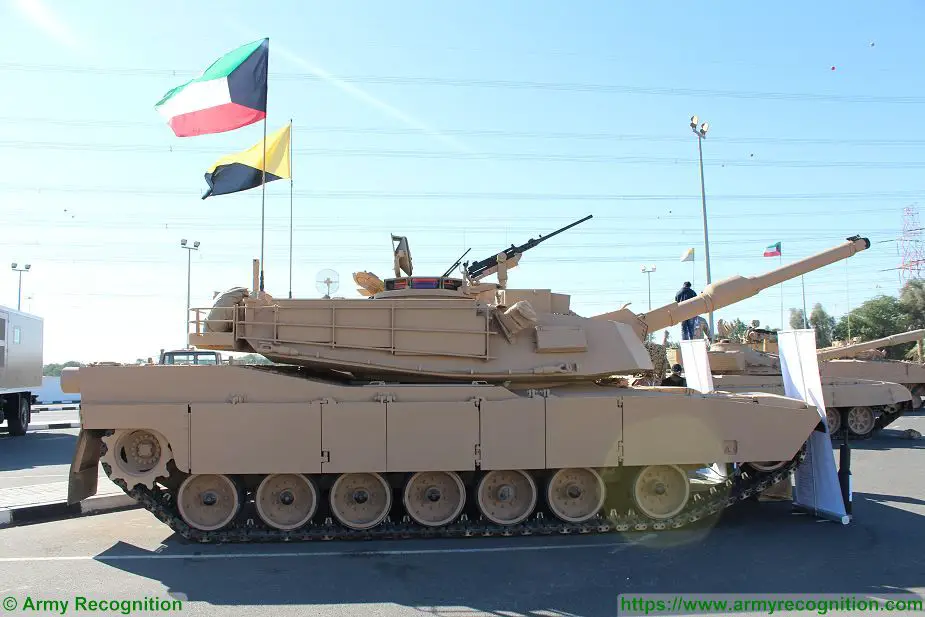Breaking news
General Dynamics to build M1A2-K main battle tank for Kuwait.
On December 19, 2017, the US Department of Defense has announced that American Company General Dynamics Land Systems Inc., Sterling Heights, Michigan, has been awarded a $24,272,649 modification to foreign military sales contract for Kuwait to design, develop, and build a M1A2-K unique main battle tank.

Kuwaiti M1A2 main battle tank at GDA 2017 defense exhibition in Kuwait (Picture source Army Recognition)
In December 2016, US Defense Security Cooperation Agency (DSCA) announced a possible sale of two hundred eighteen (218) M1A1 Abrams tank hulls with 120mm cannons and two hundred eighteen (218) AGT-1500 (M1 Tank Series) engines in support of its M1A2 tank recapitalization. Also included are transportation and other logistics support for and estimated cost of $29 million.
According to another U.S. foreign sale of December 13, 2016, the recapitalization program of Kuwaiti M1A2 tanks will include two hundred and forty (240) .50 Cal M2A1 machine guns, four hundred and eighty (480) 7.62mm M240 machine guns, two hundred and forty (240) AN/VRC-92E SINCGARS radios and one thousand and eight five (1,085) AN/PVS-7B Night Vision Goggles.
Also included is the incorporation of cooling system/thermal management systems; Common Remotely Operated Weapons Station (CROWS) II – Low Profile Stabilized Weapon Stations, special armor, 120mm gun tubes, 2nd generation Forward Looking Infrared (FLIR) sights, embedded diagnostics, gunner’s primary sights, Counter Sniper and Anti-Materiel Mount (CSAMM) hardware, upgrade/maintenance of engines and transmissions depot level support, training devices, spare and repair parts, support equipment, tools and test equipment, technical data and publications, personnel training and training equipment, U.S. Government and contractor engineering, technical, and logistics support services, and other related elements of logistics support. Total estimated program cost is $1.7 billion.




























